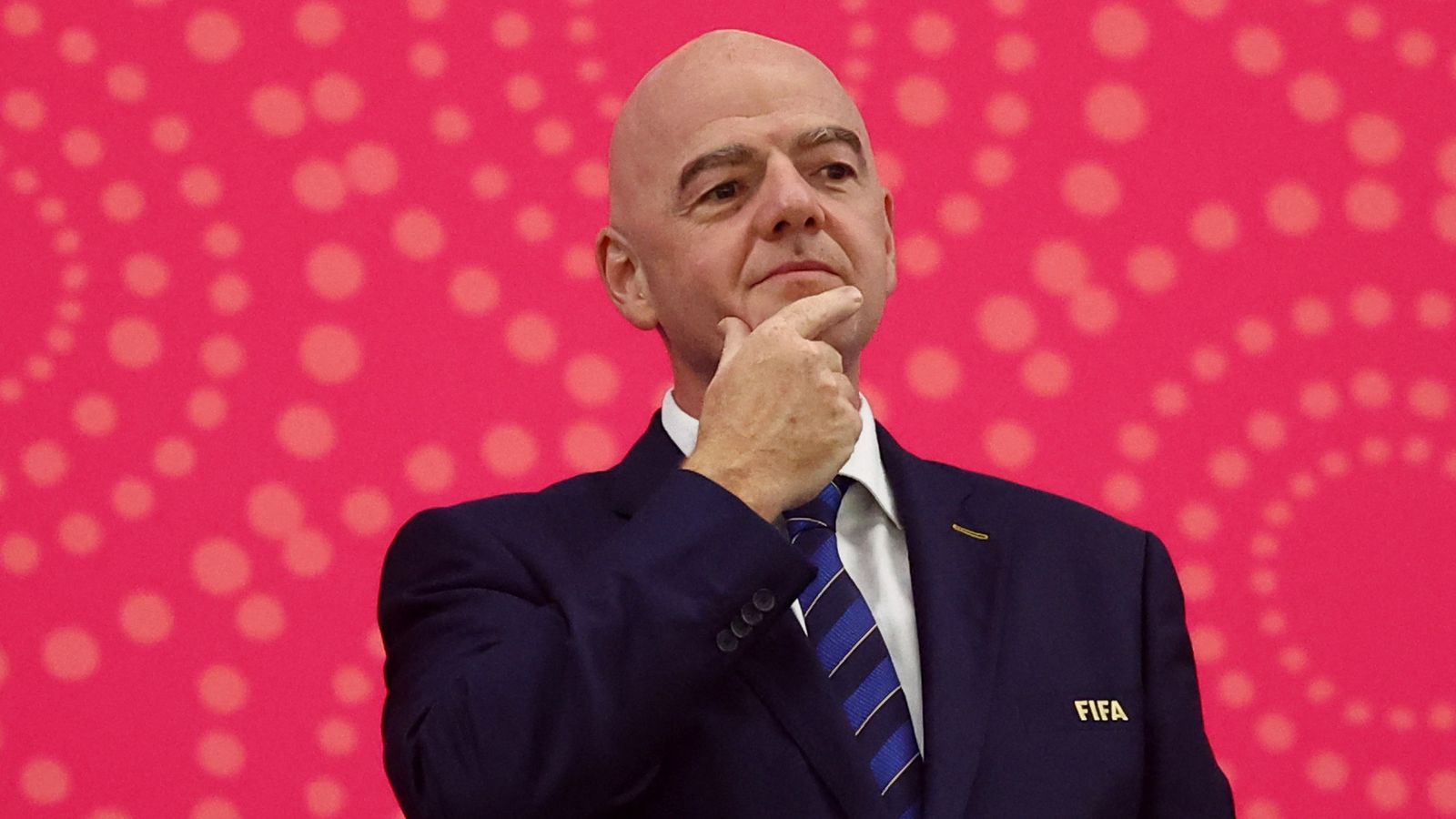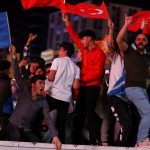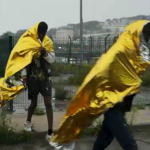In a 142-word statement from European football’s governing body postponing Israel’s upcoming matches there was a glaring omission.
It did reference the “current security situation in Israel”.
But at that point – 36 hours after the surprise Hamas attack on Israel – UEFA omitted any reference to the hundreds killed in Israel or condolences to its member nation reeling from an unprecedented massacre.
Read more: Israel warns its offensive ‘won’t be clean’ – latest updates
A nation hosting the UEFA under-19 European championship in 2027.
A nation whose football community is mourning the death of a former player Lior Asulin – murdered by Hamas gunmen at the music festival close to the Gaza border.
The social media feed of his former club, Hapoel Tel Aviv, like so many other institutions in Israel, is a feed of tributes to fans killed on the deadliest day for civilians in Israeli history.
By contrast, UEFA took only a few hours last month to announce on a non-member nation: “Victims of the tragic earthquake in Morocco to be remembered at all upcoming national team and club competition matches.”
In 2016, condolences were swiftly sent to France after UEFA said it was “deeply saddened by the terrorist attack which occurred in Nice”.
Russia’s invasion of Ukraine in 2022 was met with a decisive stance by UEFA and FIFA.
Please use Chrome browser for a more accessible video player
They said in a joint statement after condemning the war: “Football is fully united here and in full solidarity with all the people affected in Ukraine.”
But Tuesday was a fourth day of silence from FIFA on the Israel-Hamas war, which has claimed hundreds of lives in Gaza in retaliation for the brutal assault.
In that time, FIFA president Gianni Infantino has posted on Instagram from a visit to the Qatar F1 Grand Prix, images from his recent attendance at the wedding of former Brazil star Ronaldo, and various birthday greetings.
Mr Infantino also issued condolences and prayers to the victims of the earthquake in Afghanistan over the weekend through an Instagram story statement.
FIFA has not commented on the loss of life in the Middle East.
But that is a reflection of football’s response to the atrocities.
Please use Chrome browser for a more accessible video player
Wembley Stadium’s arch was lit in the colours of Ukraine’s flag a day after Russia’s invasion was launched last year.
The blue and white of Israel’s flag are yet to be illuminated there – unlike at government buildings in London.
It is a tragedy highlighting the complexities of how and when football shows solidarity with victims of attacks.
The Premier League – which adopted the Ukraine flag last year corporately – held no moment of solidarity before weekend matches.
A Premier League reporter for Qatar-owned beIN Sports – Ibrahim Khadra – attacked “a policy of double standards” for being asked to remove a Palestinian keffiyeh at Sunday’s Arsenal v Manchester City match.
He posted on X: “As a Palestinian, you do not have the right to defend yourself or sympathise with the victims of the occupier’s attacks, even if it is in a symbolic way.”
The Premier League did not immediately respond to a request for comment.
Read more:
1,500 militant bodies found in Israel as tanks mass on border
Foreign secretary calls on Palestinian protesters to stay home
There was a firm stance in Scotland from Celtic – condemning its own supporters who displayed banners reading “Victory to the Resistance!” and “Free Palestine”.
The club said: “At a time of loss and suffering for many, it is entirely inappropriate for any group of individuals to use Celtic Park as a vehicle for such messages.”
Football will be treading a fine path when addressing a long-running conflict.
But more than 10 British citizens are feared dead or missing following the Hamas attacks.
And the willingness to “stand together with Ukraine” exposes the mute response by the football community on the mass slaughter of Israelis.
Be the first to get Breaking News
Install the Sky News app for free
In 2020, Mr Infantino even made the trip to the White House for a highly political event – the signing of the US-brokered normalisation agreements between the UAE, Bahrain and Israel.
“We hope that football can also play a part in ending rivalries and fostering good will and understanding between people,” he said, inserting FIFA directly into resolving hostilities in the region.
“We want football to continue contributing to positive change across the world.”
And last year Mr Infantino was hailing an agreement for Israeli and Palestinian fans to visit the World Cup in Qatar by declaring it “provides a platform to improve relations across the Middle East”.
But it is a platform football steps away from when it seems too problematic, risking the appearance of a hierarchy of tragedies and perception the deaths of some matter less than others.






















